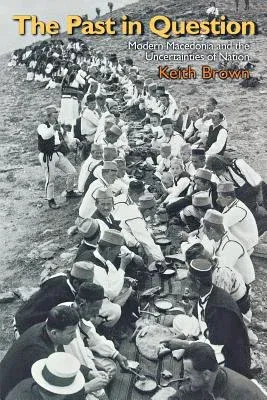This book examines the relationship between national history, identity,
and politics in twentieth-century Macedonia. It focuses on the
reverberating power of events surrounding an armed uprising in August
1903, when a revolutionary organization challenged the forces of the
Ottoman Empire by seizing control of the mountain town of Krusevo. A
century later, Krusevo is part of the Republic of Macedonia and a site
for yearly commemorations of 1903. In the course of the intervening
hundred years, various communities have vied to establish an
authoritative account of what happened in 1903--and to weave those
events into a longer and wider narrative of social, cultural, and
national evolution.
Keith Brown examines how Krusevo's residents, refugees, and exiles have
participated--along with scholars, journalists, artists, bureaucrats,
and politicians--in a conversation about their vexed past. By tracing
different approaches to understanding, commemorating, and narrating the
events of 1903, he shows how in this small mountain town the "magic of
nationalism" by which destiny is written into particular historical
events has neither failed nor wholly succeeded. Stories of heroism,
self-sacrifice, and unity still rub against tales of treachery, score
settling, and disaster as people come to terms with the legacies of
imperialism, socialism, and nationalism. The efforts of Krusevo's
successive generations to transcend a past of intercommunal violence
reveal how rival claims to knowledge and truth acquire vital
significance during rapid social, economic, and political change.

